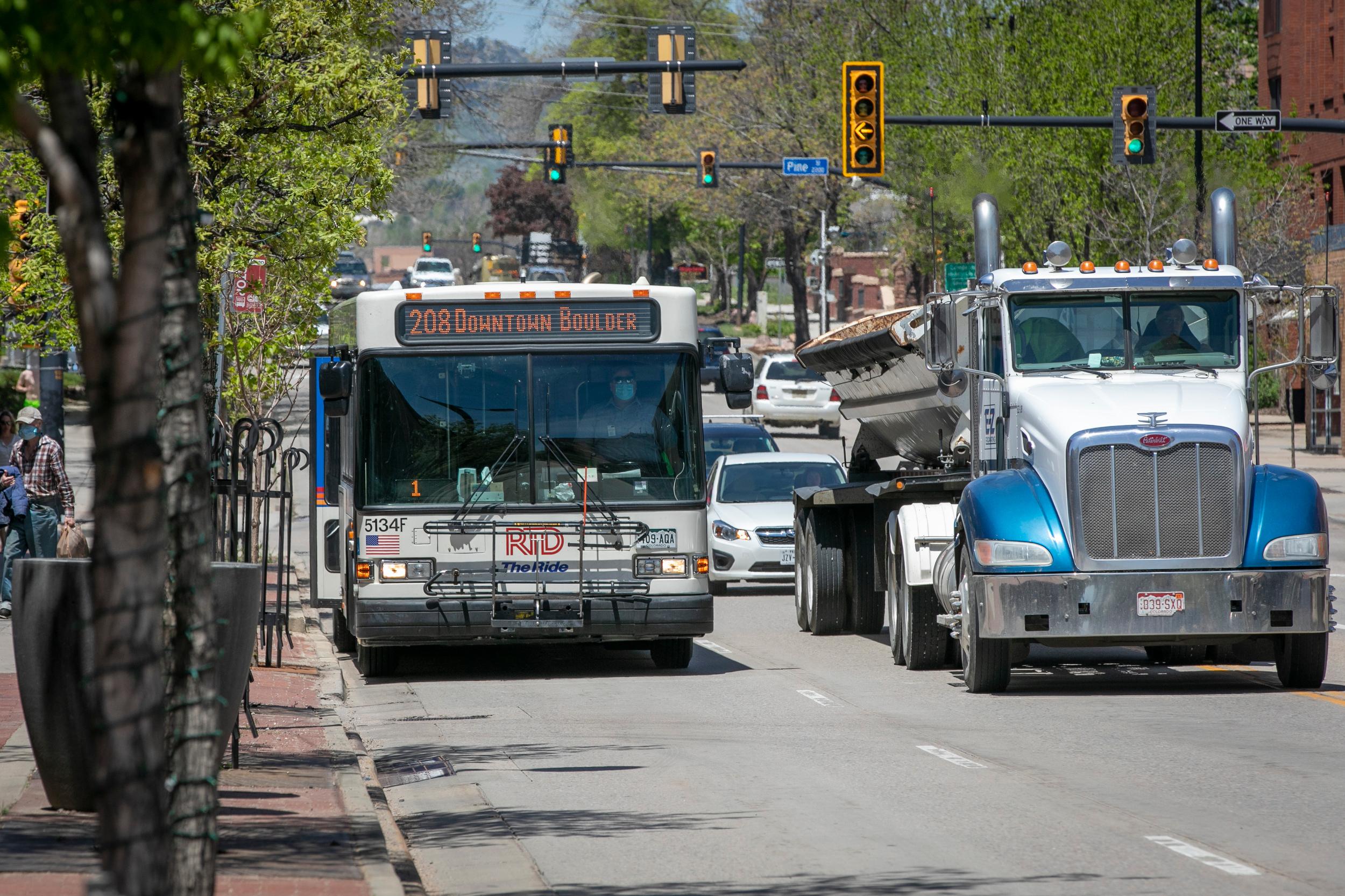
A revised forecast predicts that the Regional Transportation District's 2020 revenues could be nearly $40 million higher than a previous estimate.
And next year's revenue might actually be $105 million higher than first thought. Overall, the revised figures from the University of Colorado Boulder’s Leeds School of Business shared with the RTD board of directors Tuesday predict a 9 percent drop in revenue by 2026.
That's far less than the 24 percent Leeds economists projected in the spring, which led to existential angst and warnings from RTD that it likely would not be able to afford to restore service to pre-pandemic levels.
"I personally was really shocked when I saw the difference in the numbers," said Angie Rivera-Malpiede, chair of the RTD board.
CU Leeds economist Brian Lewandowski attributed the shifting numbers to better-than-expected sales tax revenues, employment picking up a little earlier than expected, and other factors that affected Leeds' model.
Due to the volatility of estimates, Leeds will now give the transit agency new forecasts monthly, rather than just twice a year. Lewandowski said the next few months of sales tax receipts, which RTD will receive next week, will be very revealing.
“It’s going to tell us how consumers and spending are coming back within the Denver metro region,” he said.
RTD CFO Heather McKillop said she expects numbers could shift again and that the agency will need to be flexible when it comes to setting its budget.
"I know that it's a bit stressful for all of us to have numbers all over the place," she told the board Tuesday. "But at the same time, hopefully these numbers are more accurate. And we also will be in a more positive situation than we were just a few days ago before we got the forecast, because it was pretty dire."
If cases spike again, it's unclear how a second wave of restrictions might affect RTD and its revenues. A handful of board members said they still intended to take a conservative approach to the budget.
"I think we find ourselves with our feet planted firmly in quick sand," board member Bob Broom said. "There are so many uncertainties out there that we shouldn't make long-term decisions until things settle down. And that's going to take some time."









